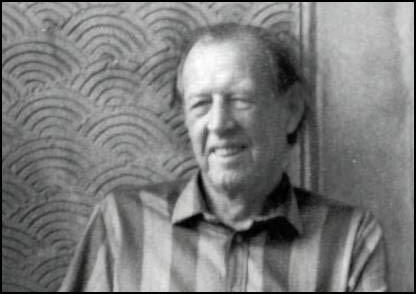Raymond Williams
Raymond Williams, the son of a railway signalman, was born in Wales on 31st August 1921. Educated at Abergavenny Grammar School and Trinity College, Cambridge, his studies were interrupted by the Second World War. He joined the British Army and saw service as an anti-tank captain.
After the war he worked in adult education before becoming a lecturer at Cambridge University. A socialist, in the 1950s he joined forces with E. P. Thompson, Raphael Samuel, Ralph Miliband, Stuart Hall and John Saville to launch two radical journals, The New Reasoner and the New Left Review.
Williams wrote extensively about the history of culture. Books by Williams include Culture and Society 1780-1960 (1958), The Long Revolution (1961), Keywords: A Vocabulary of Culture and Society (1976), Communications (1962), Second Generation (1964), Orwell (1971), The Country and the City (1973), Television: Technology and Cultural Form (1974), Marxism and Literature(1977), The Volunteers (1978), Problems in Materialism and Culture (1980), Culture (1981), Writings in Society (1983), Loyalties (1985) and Resources of Hope: Culture, Democracy, Socialism (1989).
Raymond Williams died on 26th January 1988.

Primary Sources
(1) Raymond Williams quotes (26th March 1909)
"In this book I have sought to clarify the tradition, but it may be possible to go on from this to a full restatement of principles, taking the theory of culture as a theory of relations between elements in a whole way of life." Culture and Society 1780-1960 (1958)
"We all like to think of ourselves as a standard, and I can see that it is genuinely difficult for the English middle class to suppose that the working class is not desperately anxious to become just like itself. I am afraid this must be unlearned." Culture and Society 1780-1960 (1958)
"My own view is that if, in a socialist society, the basic cultural skills are made widely available, and the channels of communication widened and cleared, as much as possible has been done in the way of preparation, and what then emerges will be an actual response to the whole reality, and so valuable." Culture and Society 1780-1960 (1958)
"There has never been a time, until the last fifty years, when a majority of any population had regular and constant access to drama, and used this access... It seems probable that in societies like Britain and the United States more drama is watched in a week or weekend, by the majority of viewers, than would have been watched in a year or in some cases a lifetime in any previous historical period. It is clearly one of the unique characteristics of advanced industrial societies that drama as an experience is now an intrinsic part of everyday life, at a quantitative level which is so very much greater than any precedent as to seem a fundamental qualitative change. Whatever the social and cultural reasons may finally be, it is clear that watching dramatic simulation of a wide range of experiences is now an essential part of our modern cultural pattern." Television: Technology and Cultural Form (1974)
"The human crisis is always a crisis of understanding: what we genuinely understand we can do." Keywords: A Vocabulary of Culture and Society (1976)
"To be truly radical is to make hope possible rather than despair convincing." Resources of Hope: Culture, Democracy, Socialism (1989)

